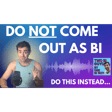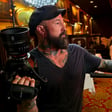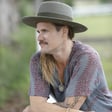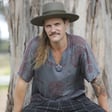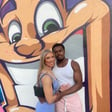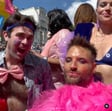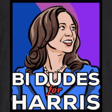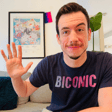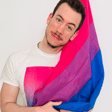
Reframing Sexuality and Identity Politics with Mark Wilkinson
Follow Mark Wilkinson on Twitter: https://twitter.com/MarkJoseph_82
Follow Mark Wilkinson on Instagram: https://www.instagram.com/markjoseph82/
Mark's "Bisexual Oysters" paper: https://journals.sagepub.com/doi/abs/10.1177/1750481318817624
Two Bi Guys is now sponsored by Zencastr! You can get 30% off Zencastr for 3 months with promo code: twobiguys -- or just click this link: https://zencastr.com/pricing?coupon=twobiguys&fpr=ex42o. Start recording your own podcast or meetings today!
We're back with part 2 of our interview with Mark Wilkinson, a PhD candidate at Lancaster University studying media representation of the LGBT+ community, and we pick right up where we left off, analyzing the use of the word "bisexual" in the British press during the 80s, 90s, and through 2017. Mark discusses how the term became much more widely used during the AIDS/HIV crisis and the implications of that association, as well as how it shifted to becoming more of an identity in the 2000s as opposed to a word describing behavior or sexual activity.
We also chatted about changes happening just in the last few years, like the rise of the term "pansexual" and a push for more "queer" spaces. Then we talked about challenging basic assumptions about sexuality, like the fact that gender is the basis for most labels, as opposed to, for example, what sexual acts turn you on or your preferred relationship structure. Finally we touched on queer politics and the power of linguistics to both divide and unite.
Two Bi Guys is produced and edited by Rob Cohen
Created by Rob Cohen and Alex Boyd
Logo art by Kaitlin Weinman
Music by Ross Mintzer
We are supported by The Gotham
Made on Zencastr #MadeOnZencastr
